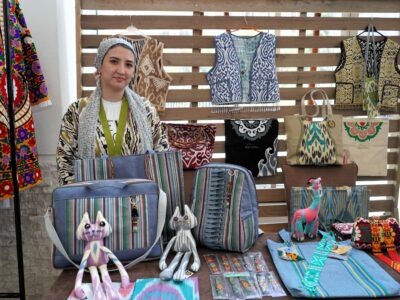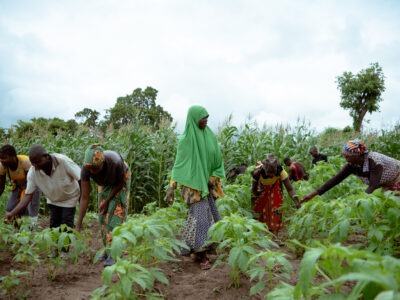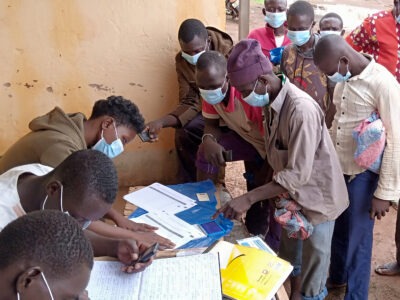The ATONU: Improving Nutrition Outcomes through Optimized Agricultural Investments initiative kicks off at the Africa Day for Food and Nutrition Security on Wednesday, October 28. This annual event gathers a variety of stakeholders to address food and nutrition insecurity in Africa.
 |
 |
Led by the South Africa-based Food, Agriculture and Natural Resources Policy Analysis Network (FANRPAN), ATONU answers the question of what agriculture programs can do to achieve positive nutrition outcomes. It uses a multidisciplinary approach to unite agriculture and nutrition thought leaders and provide the framework, approaches, and tools needed to effectively integrate nutrition into agricultural activities.
Agribusiness Systems International (ASI), an affiliate of ACDI/VOCA, is part of the consortium that is designing, piloting, evaluating, and promoting a range of interventions to improve the nutritional outcomes of agricultural programs and policies. ATONU is piloting its technical assistance and policy advocacy in Ethiopia and Tanzania. Going forward, ATONU will expand into Nigeria, Ghana, and Uganda to spread its message and break the cycle of malnutrition in sub-Saharan Africa.
African Stakeholders Rally around Food and Nutrition Security
Since 2010, October 30th has been commemorated as Africa Day for Food and Nutrition Security (ADFNS). Organized by the New Partnership for Agricultural Development (NEPAD) and the African Union (AU), the annual event serves as a rallying point to address food and nutrition insecurity in Africa.
To address widespread food and nutrition challenges across the continent, ADFNS provides a platform for stakeholders from civil society, the private sector, the scientific community, farmers, and development practitioners to share experiences and knowledge as well as measure progress in assuring food and nutrition security for all.
Inspired by the African Union’s 2015 theme, “Year of Women Empowerment and Development towards Africa’s Agenda 2063,” this year’s event in Kampala, Uganda, has a special focus on women. Though women play a pivotal role in boosting their families’ nutrition and contribute over 60 percent of farm labor, they are often excluded from family and farm decision making. Both ATONU and ADFNS seek to amplify women’s voices and strengthen their capacity to influence such important matters for the betterment of their families and communities.
NEPAD is driving the African response to this gender disparity with their Gender Climate Change and Agriculture Support Programme that partners with regional and country-level interventions to build the capacity of female farmers, closing institutional gaps, and scaling up successful programs.
Our Commitment to Food and Nutrition Security
In sub-Saharan Africa, an intergenerational cycle of undernutrition persists. Forty percent of children under five are stunted. Stunting disproportionately impacts poor, rural households. Such long-term malnutrition can reduce a country’s economic advancement by six percent of its GDP due to lost productivity.
Other ACDI/VOCA and ASI food and nutrition security projects in Africa include the following:
- Kenya AflaSTOP, jointly implemented by ACDI/VOCA and ASI, works to identify the most promising storage options to arrest the growth of aflatoxin and design drying options to allow smallholder farms to dry their grain to safe storage levels.
- Ethiopia AGP-AMDe, a Feed the Future project, uses a value chain approach to strengthen the agriculture sector, enhance access to finance, and stimulate innovation and private sector investment.
- The AgResults Kenya Pilot and AgResults Zambia Pilot, are part of the multi-lateral AgResults initiative that is incentivizing high-impact agricultural innovation to promote global food security, health, and nutrition. The AgResults Kenya Pilot focuses on promoting adoption of on-farm storage technologies while the AgResults Zambia Pilot promotes consumption of biofortified maize.
Read more about ATONU.
Learn more about Agribusiness Systems International.
Read more about our work in health and nutrition.
Read more about our work in women’s empowerment.








